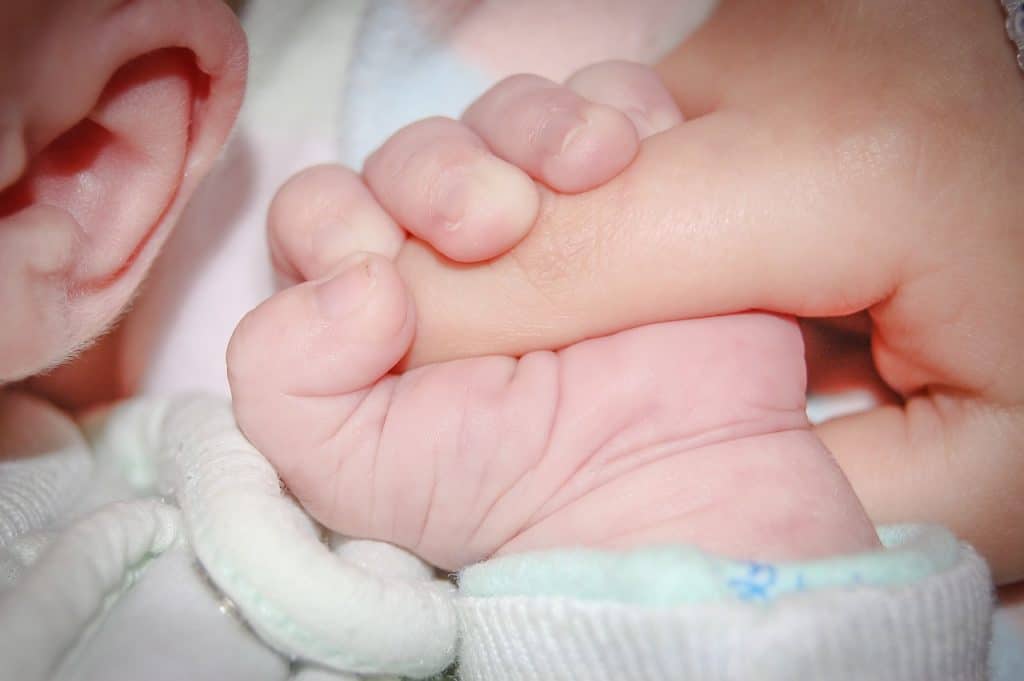
CORD BLOOD BANKING IN IOWA
What is Cord Blood banking in Iowa?
Cord blood banking is a procedure that has been gaining increased attention in the medical world for its potential to help treat a range of diseases and medical conditions.
In simple terms, cord blood banking involves collecting and storing stem cells from a newborn’s umbilical cord. These stem cells are rich in potential and can be used to help treat a range of illnesses, including certain cancers, blood disorders, and genetic diseases. As a result, many expectant parents are now considering cord blood banking as a way to secure their child’s health for the future.
The process of banking umbilical cord blood involves collecting the blood immediately after birth and sending it to a specialized facility for processing and storage.
The cost of storage can vary depending on the service provider and the length of storage time chosen. There are many factors to consider when deciding whether to bank cord blood, including family medical history and the potential future use of the stem cells.
What is cord and tissue banking in Iowa?
Cord tissue banking involves the collection and storage of the cord tissue, which is the gel-like material that surrounds the blood vessels in the umbilical cord. This tissue is rich in stem cells, which are the building blocks of the body’s immune and blood systems. The stem cells found in cord tissue are different from those found in cord blood, making it a valuable resource for future treatments.
Umbilical cord blood and tissue collection in Iowa?
Umbilical cord blood and tissue are collected immediately after birth via a non-invasive and pain-free procedure.
The umbilical cord is clamped and cut as usual, but instead of discarding the placenta and umbilical cord, they are collected by a trained healthcare professional.
The blood is extracted from the cord using a sterile needle and collected into a specialized bag with anticoagulants to prevent clotting. The tissue is collected by cutting a small piece of the cord and placing it into a sterile container.
Both cord blood and tissue are then transported to a laboratory for processing and storage.
This procedure is a safe and effective way to collect valuable stem cells that can be used for future medical treatments.


Umbilical cord blood and tissue storage near Iowa
Umbilical cord blood and tissue are valuable sources of stem cells, which have the potential to treat a wide range of diseases.
To ensure the preservation of these stem cells, they are collected at the time of birth and stored in specialized facilities.
The most common method of storage is cryopreservation, where the stem cells are slowly frozen and stored in liquid nitrogen at -196°C.
This ensures that the stem cells can be retrieved and used for medical purposes for many years to come. Additionally, many cord blood banks also offer the option to store the umbilical cord tissue, which contains a different type of stem cell that can also be used for medical treatments.
Overall, proper storage of umbilical cord blood and tissue is crucial for their potential use in future medical treatments.
Iowa is a state located in the heart of the United States, known for its rolling hills, expansive farmland, and friendly communities. Despite being a relatively small state, Iowa boasts a rich history and a diverse economy, making it a fascinating destination for tourists and residents alike. This Midwestern gem has a unique charm that sets it apart from the rest of the country, and is definitely worth exploring.
In this blog post, we’ll delve into the many facets of Iowa, from its vibrant cultural scene to its stunning natural landscapes. We’ll take a closer look at the state’s bustling cities, such as Des Moines and Cedar Rapids, and the quaint small towns that dot its countryside. We’ll also explore the many outdoor activities available in Iowa, including hiking, fishing, and camping, as well as the state’s famous agricultural industry.
Whether you’re a native Iowan looking to learn more about your state or an out-of-towner interested in visiting, this blog post will provide you with a
1. Iowa is a Midwestern state located in the United States.
Iowa is a Midwestern state situated in the central region of the United States. It is bordered by six other states, including Minnesota to the north, Wisconsin to the northeast, Illinois to the east, Missouri to the south, Nebraska to the west, and South Dakota to the northwest. The state covers an area of approximately 56,273 square miles, making it the 26th largest state in the country. Iowa is known for its vast farmland, which occupies the majority of the state. Additionally, the Mississippi River runs along the eastern border of Iowa, providing both transportation and recreational opportunities. The state capital of Iowa is Des Moines, while the largest city is Cedar Rapids.
2. It is known for its agricultural production and is the leading producer of corn and soybeans.
Iowa, located in the Midwestern United States, is known for its rich agricultural production that has contributed significantly to the state’s economy. Iowa is the leading producer of corn and soybeans in the country. These crops not only sustain domestic and global food demands but also sustain the state’s livestock industry, primarily cattle and hogs. Iowa’s fertile soil, favorable geography, climate, and advanced farming technologies enable farmers to cultivate multiple crops, including oats, hay, wheat, and potatoes. The state’s agricultural production also includes dairy products, eggs, and turkeys that supply major food chains, grocery stores, and households throughout the nation. The state’s agricultural industry plays a crucial role in Iowa’s economy and provides jobs to thousands of individuals, making agriculture the largest sector in the state.
3. Iowa is home to many renowned colleges and universities, including the University of Iowa and Iowa State University.
Iowa is a state located in the Midwestern region of the United States. It is known for its picturesque landscape and friendly people. Additionally, Iowa is home to many renowned colleges and universities, including the University of Iowa and Iowa State University. The University of Iowa is a public research institution that was established in 1847 and has since grown to become one of the state’s largest universities. The university boasts over 200 majors and degrees, a renowned medical center, and a thriving arts community. Iowa State University, another public research institution in Iowa, was founded in 1858 and is recognized for its programs in engineering, agriculture, and veterinary medicine. The university has a robust research agenda and is home to a number of research centers and institutes, including the Bioeconomy Institute and the Institute for Transportation.
4. The state has a rich history, with many museums, historical sites, and landmarks to explore.
Iowa, a state located in the Midwest region of the United States, is known for its rich history and cultural heritage. The state has numerous museums, historical sites, and landmarks that are worth exploring for those interested in Iowa’s past. One of the most prominent historical areas is Amana Colonies, a group of seven villages that were established by German immigrants in the 1850s. Visitors to Amana Colonies can stroll through the historic buildings and learn about the communal way of life of the settlers. Another must-visit destination is the Herbert Hoover Presidential Library and Museum in West Branch, which documents the life and career of the 31st President of the United States. Furthermore, the State Capitol building in Des Moines, with its impressive architecture and beautiful artwork, is a must-visit landmark for those who appreciate art and history. Visitors to Iowa can explore many more historical sites and museums, making it a great destination for history enthusiasts.
5. The capital of Iowa is Des Moines, which is also the largest city in the state.
Iowa is a state located in the Midwestern region of the United States, with a population of over 3 million people. One of the notable features of Iowa is its capital city, Des Moines, which is also the largest city in the state. Des Moines is home to over 200,000 residents, and serves as the economic and cultural center of Iowa. As the capital, Des Moines is also the seat of government for the state of Iowa, and houses the Iowa State Capitol Building. With its rich history and vibrant culture, Des Moines continues to grow and thrive as one of the most important cities in the Midwest.
6. Iowa has a diverse population, with many different cultures and communities represented.
Iowa, a Midwestern state located in the United States, has become known for its beautiful landscapes and friendly communities. One noteworthy feature of Iowa is its diverse population. From bustling urban areas to quiet rural towns, the state is home to people from a multitude of cultural and ethnic backgrounds, creating a vibrant and varied community. Iowan’s take pride in their diversity and cherish the opportunity to interact with people of different backgrounds, beliefs, and lifestyles. As such, the state has many initiatives and programs aimed at bringing people together and fostering a sense of community. Across Iowa, citizens celebrate and honor their different cultures and traditions, providing a rich tapestry of life that contributes to the fabric of the state. Overall, Iowa’s diverse population is a testament to the state’s openness, inclusivity, and welcoming nature.
7. The state is home to many beautiful parks and natural areas, such as the Loess Hills and the Iowa Great Lakes.
Iowa, located in the Midwest region of the United States, is a state known for its picturesque landscapes and natural beauty. Home to various national parks and natural areas, the state has become a popular destination for nature enthusiasts and outdoor adventurers. Among the state’s many natural wonders are the world-famous Loess Hills, a unique landform that spans over 200 miles and reaches heights of up to 200 feet. The Iowa Great Lakes, located in the northern region of the state, are another must-visit natural attraction of the state, and are known for their crystal-clear waters and pristine beaches. With its countless parks and natural areas, Iowa offers a wide variety of outdoor activities and adventures for visitors of all ages, making it an ideal destination for nature lovers and outdoor enthusiasts.
8. Iowa has a vibrant economy, with a focus on agriculture, manufacturing, and technology.
Iowa is a state located in the Midwestern region of the United States. It has a vibrant economy, with a focus on agriculture, manufacturing, and technology. The state is known for its rich soil that is ideal for growing corn, soybeans, oats, and other crops, making agriculture a key driver of Iowa’s economy. The state is also home to numerous manufacturing companies that produce a wide range of products, including machinery, food and beverage products, and pharmaceuticals. Iowa’s strong technology sector is also noteworthy, boasting tech companies that specialize in various fields, such as biotechnology, information technology, and renewable energy. This diverse economy offers numerous opportunities for businesses and entrepreneurs looking to start or expand their operations in Iowa.
9. The state is known for its friendly people and strong sense of community.
Iowa is a state known for its friendly people and strong sense of community. This Midwestern state is home to over three million residents who value a close-knit community and a warm welcome to visitors. In fact, Iowa has been consistently ranked as one of the friendliest states in the United States. The people of Iowa take pride in their state and its culture, which is reflected in their welcoming nature. This strong sense of community is demonstrated through numerous events, such as state fairs and community festivals, which bring people together to share their commonalities and celebrate their differences. It is no surprise that Iowa’s residents are often described as some of the most hospitable people in the country.
10. Whether you’re a resident or a visitor, there’s always something to discover in Iowa.
Iowa, known as the Hawkeye State, is a hidden gem for those seeking adventure and exploration. Whether you’re a resident or a visitor, there’s always something to discover in Iowa. From stunning natural landscapes to iconic historical sites, the state offers a diverse and thrilling experience for all. Take in the breathtaking views of the Loess Hills, explore historic sites like the Amana Colonies, or indulge your taste buds in the famous Iowa sweet corn. The state is also home to a plethora of museums, galleries, and cultural centers, celebrating its rich history and vibrant culture. With its friendly locals, charming towns, and vibrant cities, Iowa promises a memorable and enjoyable vacation for all. Whether you’re looking for a weekend getaway or a longer stay, Iowa has something to offer everyone.
In conclusion, Iowa may be known for its farmland and agriculture, but it has a lot more to offer. From charming small towns, picturesque landscapes, and bustling urban centers, Iowa is an underrated gem in the Midwest. It also has a rich history, diverse culture, and friendly people, which you can experience firsthand by visiting the state’s many attractions or attending its annual events. Whether you’re a nature lover, a history buff, a foodie, or a sports fan, Iowa has something for everyone. So don’t overlook this underrated state, and discover Iowa for yourself.

Stem cells, umbilical cord blood and tissue collection in Iowa
NICU Nurse Supporting Parents in the First Days After Birth
Title: “In the Quiet of the NICU: Why Cord Blood Banking Is Worth Knowing About”
You probably didn’t plan to be here.
No parent imagines they’ll spend the first days — or weeks — of their baby’s life in a neonatal intensive care unit. But here you are, surrounded by beeping monitors, IV lines, and soft swaddles. And I’m here with you — as your nurse, your educator, your calm in the storm.
Sometimes when things slow down and a baby is resting quietly, parents start asking me bigger-picture questions — not just about feeding tubes or oxygen levels, but about what happens next. That’s when cord blood banking often comes up.
Even if the decision has already passed for this birth, I believe it’s a conversation that matters — especially in the NICU, where we see every day how fragile life is… and how resilient it can be.
Umbilical cord blood and tissue storage near Iowa
What Is Cord Blood, Really?
Cord blood is the blood left in the umbilical cord and placenta after birth. In most deliveries, it’s discarded. But it’s packed with something incredible: hematopoietic stem cells — the building blocks of blood and the immune system.
These cells are already used to treat dozens of serious illnesses:
Childhood leukemias
Lymphomas
Inherited blood disorders like sickle cell disease and thalassemia
Severe combined immunodeficiency (the “bubble boy” disease)
Bone marrow failure syndromes
Certain metabolic conditions
And research continues — on everything from cerebral palsy to Type 1 diabetes.
CORD BLOOD REGISTRY IN IOWA
Why NICU Families Often Ask About It
When a baby is born early or unexpectedly ill, parents become experts overnight — learning about medical terms most people never hear.
And in that swirl of new information, I often hear:
“If we’d known more ahead of time, we might’ve chosen to bank the cord blood.”
That’s not to induce guilt — I don’t believe in that. But I do believe in knowledge. Because what I’ve learned, working in the NICU for over 12 years, is that one small medical option can sometimes mean the biggest difference later.
Public vs. Private: Let’s Simplify It
🌍 Public Cord Blood Donation
Free, anonymous
Your baby’s stem cells go to a national registry, available to anyone in need
Makes transplant access more equitable and saves lives
🧬 Private Cord Blood Banking
Stored for your family’s future use
Costs around $2,000 plus annual fees
Worth considering if you have a family history of treatable genetic or immune conditions
Most NICU families ask me if it’s too late. For this birth, if the cord wasn’t collected, the window is closed. But many families are planning for more children — and next time, they want to be ready.
What is Cord Blood banking in Iowa
?
The Real-Life Impact: A Story I’ll Never Forget
We had a baby here — let’s call her Ava. She was born full-term but developed a rare immune condition at just a few months old. She needed a stem cell transplant urgently.
Her parents hadn’t banked her cord blood. But someone else had donated their baby’s cord blood to a public bank. It was a match. Ava got her transplant.
Today, she’s a bubbly little preschooler who brings cookies when she visits the unit. (Her parents do most of the baking, but she takes all the credit.)
That match — that second chance — happened because one family made a quiet, generous decision at birth.
If You’re Still in the Decision Window
Depending on your baby’s condition, gestational age, and hospital policies, you may still be able to collect cord blood — especially if your baby is stable and you’re planning a future procedure (like a twin birth with delayed cord clamping).
Here’s what I usually suggest:
Ask your neonatologist or OB if it’s still possible to collect.
Contact a bank (public or private) right away — they’ll guide you through the logistics.
Plan ahead for future births — even just knowing what to ask next time makes a difference.
My Promise as Your Nurse
I’m not here to sell anything. I don’t get paid for referrals. I just care deeply about giving families all the information — so you can make the right call for your family.
Sometimes that means saying no to cord blood banking.
Sometimes that means saying yes.
But it should always mean saying yes to being informed.
You’re doing more than just surviving right now. You’re showing up, learning fast, and making tough choices with love. I see it every day, and I admire it more than I can say.
In Closing
Cord blood might not be top of mind right now. And that’s okay. There’s enough going on. But when the monitors quiet down and your baby is resting, if you want to talk about it — I’m here.
Because the same cord that connected your baby to life in the womb… might also one day connect another person to their second chance.
Tiny body. Big future. Endless love.
Keywords: NICU nurse cord blood, premature baby cord blood options, neonatal intensive care stem cells, cord blood in emergency birth, nurse explains public banking, private storage after NICU stay, hematopoietic stem cells NICU, baby born early cord blood, stem cell transplant infant, umbilical cord blood NICU story
Table of Contents
Toggle